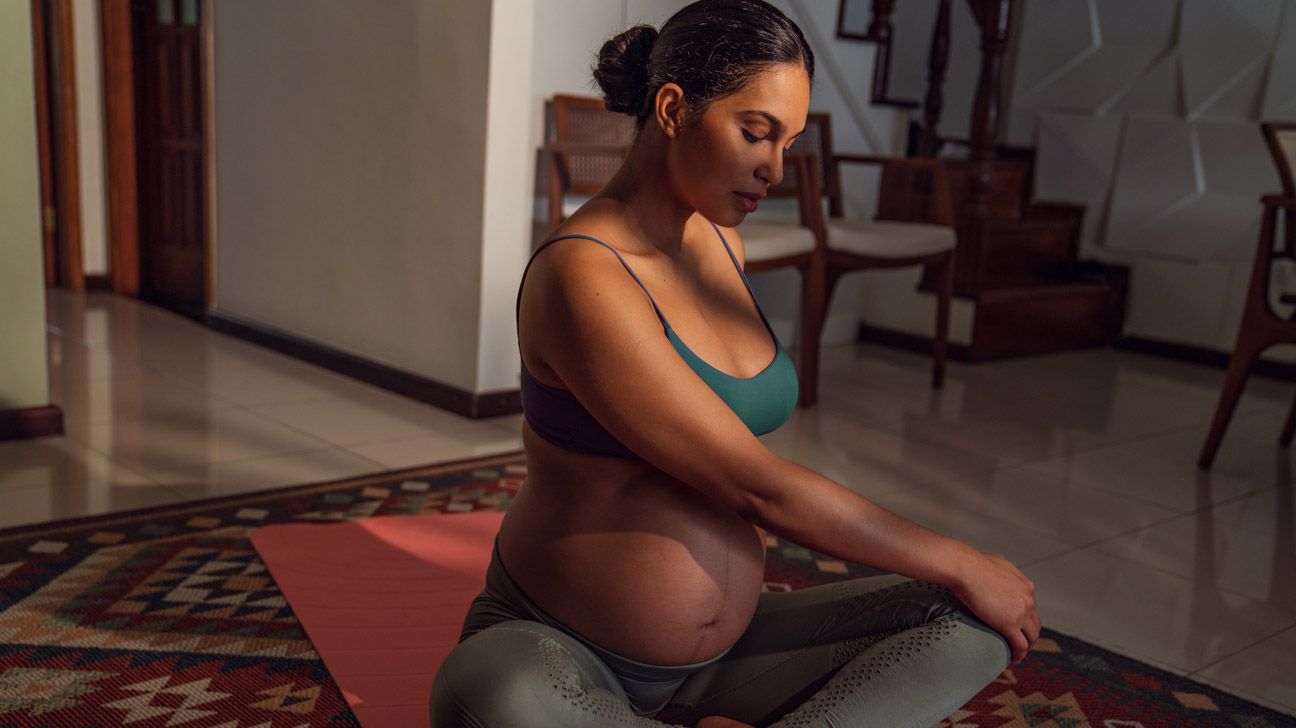Minor back pain during pregnancy usually requires no treatment. But if your back pain is severe, consult with your doctor soon, as it could be a pregnancy complication or other serious medical concern.

Back pain is an uncomfortable but very common feature of pregnancy. As many as
While putting your feet up or getting an occasional massage may relieve minor back pain, managing severe back pain can often require all that and more.
This article looks at some of the causes of back pain during pregnancy and ways to treat or at least reduce that discomfort.
Severe back pain when you’re pregnant can have several causes.
When you’re pregnant, your back must support additional weight for months. And as your uterus and baby grow, your center of gravity pushes forward, affecting your posture and possibly triggering back pain. These causes are usually responsible for back pain that emerges during the second and third trimesters.
First-trimester back pain can stem from the release of hormones that help soften cartilage in your pelvic area and loosen joints to make the delivery easier. These changes mean your back loses some of the support that those joints and cartilage would usually provide. The psychological or emotional stress of managing this new development in your life can also cause muscle tightening and back pain early in your pregnancy.
Certain pregnancy complications may also trigger severe back pain. The sudden onset of back pain can be a sign of preterm labor or a urinary tract infection (UTI).
Less common causes of severe back pain during pregnancy include pregnancy-associated osteoporosis, vertebral osteoarthritis, and septic arthritis.
Relieving severe back pain during pregnancy may require a variety of treatments and changes to the way you perform everyday activities.
Adjust your lifestyle
To help prevent flare-ups of back pain or cope with pain at home or work, keep these tips in mind:
- Avoid lifting heavy objects. If you do have to lift something, use a wide stance and bend at the knees, not at the waist.
- Maintain proper posture when sitting. Try to sit straight in chairs that provide good back support and use a footrest whenever possible.
- Sleep on your side, with a support pillow between your knees.
Dress for less pain
Certain clothing choices may help relieve pain, too. Wear sneakers or other shoes that provide good support, and set the high heels aside until after the baby is born.
You may also find relief with an abdominal support garment, which looks like a girdle and takes some of the belly weight off of your back muscles. Some maternity pants also come with a wide elastic band that fits under your belly to give you more support.
Massage
Prenatal massage can often ease a sore back and improve relaxation. A
Prenatal massage is usually recommended after the first trimester. To ensure a safe massage, try to find a certified massage therapist with experience in providing prenatal massage.
Exercise
Pregnancy can limit some of the activities you might usually enjoy. Yet many other types of exercise can help keep you healthy and energized, while also easing your back pain.
In fact, a
Among the recommended exercises are:
- physiotherapy (also known as physical therapy) that focuses on safe exercises to improve back strength and flexibility
- swimming and water aerobics, which allow you to be active with less impact on your back and other joints
- yoga, with special attention to postures and movements that you can perform safely
Exercise is important for your overall health during pregnancy, but it’s best to limit your activities to mild or moderate intensity, rather than working out to the point of exhaustion. Always consult with your healthcare team before starting a new exercise regimen.
Stretch
The extra weight that accompanies pregnancy can put pressure on the sciatic nerve, which runs from your spine down both legs. Certain stretches involving your back and legs can help with sciatica during pregnancy. Consult a physical therapist for some safe stretches that might help.
Treat any infection
If you are diagnosed with a UTI or other bacterial infection, it’s important to treat it promptly before it spreads and causes serious complications, such as sepsis. Many antibiotics, such as amoxicillin and erythromycin, are usually considered safe to take while pregnant. But be sure to discuss any and all medication use with your obstetric care professional.
Back pain often goes away as your body recovers after delivery. The timeline for recovery can vary considerably. A
When should I be concerned about back pain during pregnancy?
The American College of Obstetricians and Gynecologists recommends seeing your obstetric care professional if minor back pain becomes severe or if the pain lingers for at least 2 weeks. You should also seek medical attention if you experience other symptoms, such as vaginal bleeding, severe abdominal pain, or a fever.
How can I decompress my spine while pregnant?
Spinal decompression is a widely used nonsurgical treatment for back pain and mobility concerns. It is not, however, recommended for people who are pregnant. Massage and physiotherapy may be better options.
Is it safe to use a heating pad on your back while pregnant?
You may safely use a heating pad, but you should keep it on the lowest setting and wrap it in a towel to prevent burns or excessive heat on your back or sides.
While some back pain is almost inevitable during pregnancy, it’s still not something that you should ignore or minimize.
It’s recommended to keep in frequent communication with your obstetric care professional as new symptoms emerge or existing symptoms change. And if back pain becomes severe and lingers for several days, don’t hesitate to share that information and ask your doctor about what can be done.
Relieving severe back pain during pregnancy often takes a combination of treatments and lifestyle adjustments, but those actions may go a long way in easing your discomfort and restoring some quality of life during this exceptional time.

